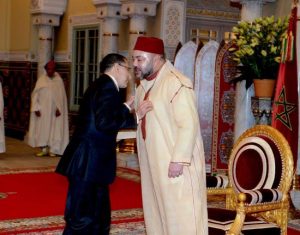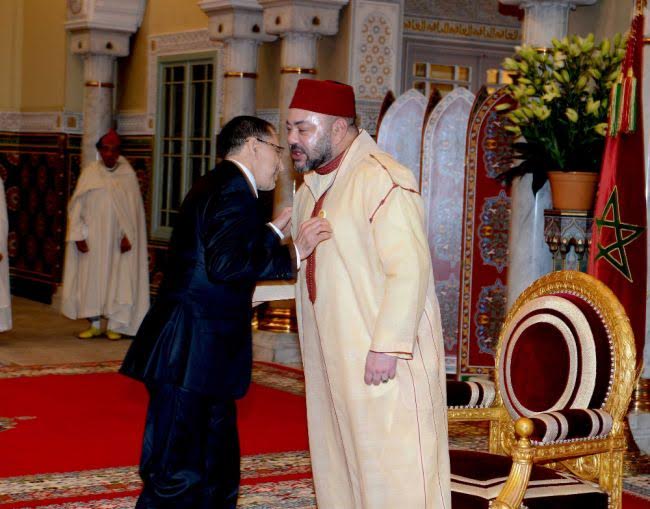 Saad-Eddine El Othmani, member of the leadership of the Islamist moderate Party for Justice and Development and President of the party’s National Council has been designated Head of Government.
Saad-Eddine El Othmani, member of the leadership of the Islamist moderate Party for Justice and Development and President of the party’s National Council has been designated Head of Government.
King Mohammed VI received Othmani, a former Foreign Minister, at the Royal Palace of Casablanca Friday and instructed him to form a new government, a statement by the Royal official said.
The move comes after King Mohammed VI dismissed on Wednesday the PJD leader Abdelilah Benkirane who has been entrusted with forming a government just 48 hours after the elections of the October 7 elections were proclaimed, but who failed in his task to lead negotiations with other would-be partners in the cabinet.
The negotiations with the National rally of Independents (RNI) and its partners, namely the Constitutional Union (UC), the Popular Movement (MP) and the Socialist Union of Popular Forces (USFP) lasted for more than five months but reached no results. Benkirane’s ego seemingly prevailed over the country’s interests as he took the other parties’ stands personally and could no longer interact with them.
Benkirane deemed the conditions set forth by other parties “inacceptable” and went as far as evoking a “putsch” against democracy and “maneuvering behind his back” to make the formation of the new government a “mission impossible”.
The Royal Office statement announcing Benkirane’s dismissal had explained that the King took the decision in his quality as supreme referee and custodian of the supreme interests of the nation and citizens and in conformity with his prerogatives under the 2011 Constitution with a view to safeguarding the nation’s democratic choice and the smooth functioning of its institutions.
The Royal decision was taken after Benkirane’s failure to record any breakthrough in negotiations, the statement had recalled.
The impasse fueled concern over the impact of the gridlocked situation on the country’s economy and investment. The stalemate also threatened the country with a political crisis. This year’s budget, which should have been approved by parliament by the end of 2016, cannot be passed until a government is in place.
So to break the current deadlock, King Mohammed VI “has decided to appoint another member of the PJD to lead the government within the shortest time possible,” the statement released Wednesday by the Royal Office said.
The PJD first came to power in 2011 after he overcame other parties as to the number of seats in Parliament and Benkirane led a coalition Government for five years.
In the October 7 elections, the PJD confirmed its position as the biggest party, but did not win the majority, making it necessary to form alliances with other parties, as was the case in 2011, in order to have 198 seats in parliament and secure thus a majority.
In view of the fragmentation of Morocco’s political landscape and under the current election law, no party can win an outright majority in the 395-seat parliament, making coalition governments a necessity.
